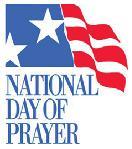You may not agree with the Supreme Court’s denial of standing to plaintiffs challenging an Arizona law giving tax credits for parochial schools, but the sentiment of limited judicial powers articulated by Justice Kennedy should resonate with folks from Tea Party members to liberal activists. Supreme Court Upholds Tax Break for Arizona Religious Schools | L.A. Times.
Few exercises of the judicial power are more likely to undermine public confidence in the neutrality and integrity of the Judiciary than one which casts the Court in the role of a Council of Revision, conferring on itself the power to invalidate laws at the behest of anyone who disagrees with them. In an era of frequent litigation, class actions, sweeping injunctions with prospective effect, and continuing jurisdiction to enforce judicial remedies, courts must be more careful to insist on the formal rules of standing, not less so. Making the Article III standing inquiry all the more necessary are the significant implications of constitutional litigation, which can result in rules of wide applicability that are beyond Congress’ power to change. The present suit serves as an illustration of these principles.


